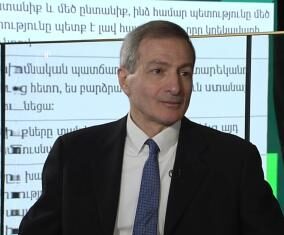By Judy Saryan
PORTLAND, Maine (pressherald.com) — Azerbaijani “eco-activists” have now blocked the only road that links the outside world to Nagorno-Karabakh, known as Artsakh to the Armenians, for more than 40 days.
Artsakh is a small piece of land, not much larger than the size of Rhode Island, that is connected to Armenia by a narrow corridor. The freedom of movement of Armenians in and out of Artsakh has been blocked.
Only the International Committee of the Red Cross can deliver an infinitesimal amount of food and medicine to 120,000 Armenians living in Artsakh, including 30,000 children. Gas used for heating during the cold winter months has been cut off several times. The same is true of electricity and the internet. Schools have had to shut down because of lack of food and heat.
The goal of the blockade is clear: to terrorize the Armenians and force them to leave their homeland.
Azerbaijan started a war in the fall of 2020 that lasted 44 days. With the help of Turkey and advanced weaponry including drones, Azerbaijan won the war and took a large swath of land from Artsakh. The war ended in a cease-fire agreement, which guaranteed free movement in and out of Artsakh through the now-blocked corridor.









